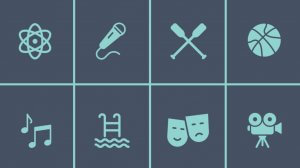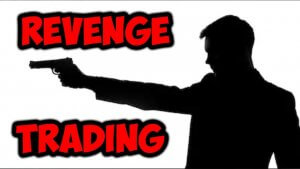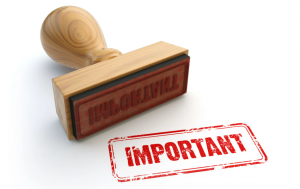It is a well-known fact that forex trading brings together a truly vast range of diverse personalities all over the world, and being such an incredibly big and booming market, it easily arouses interest in individuals regardless of their background and past academic and professional achievements. Naturally, we all desire to gather as many pieces of information right from the start, so we browse the internet in search of evidence that would confirm our compatibility with the market demands and benefits.
Not only do we want to see the fruits of our labor as fast as possible but we also realistically demand to have a clear vision of what responsibilities and tasks we can or cannot expect to take on or carry out ourselves. This thirst for concrete and relevant facts can now be quenched because the entire mental turmoil boils down to the question of whether forex trading is really worth it. For these reasons, let’s objectively analyze the key aspects that determine our motivation, satisfaction, and persistence in this market.
Education
Forex is, fortunately, or unfortunately, an entire field that is defined by specific terminology and rules that all need to be studied and understood. On a positive note, having a subject so well defined and studied as extensively offers more and more sources of information than ever before, including articles, podcasts, social media posts, videos, and trading courses. The ease of access and the myriad of places and vehicles to get educated, however, do not always support the learning process because the information offered does not always reflect original thought and what we can expect in real trading situations.
What is more, while cramming a whole set of new vocabulary and concepts they have never heard before, traders with experience in some other markets (e.g. stocks) may increasingly face difficulty due to seemingly identical tools and techniques. And, while there is so much to learn, potential or beginner traders also need to bear in mind that this is just the theoretical side of what needs to be done and that all theory ought to be properly exercised and tested to reach excellence just like in any other learning program. Nevertheless, after completing this stage, traders can rest assured that they will likely never need to go back to studying the basics, provided that they invested them conscientiously and whole-heartedly.
The Costs
People are, understandably, drawn to trading currencies because they are keen on improving their finances. Nonetheless, forex newbies often discover later on how they already need to have a specific sum of money prepared in advance to be able to enter the market. Even though investing occurs in one of the later stages in a beginner’s trading development, we do not want to have any relevant items of information escape our focus, so we must learn about brokerage, commission, spread, and all other more obscure fees. An important part of this topic includes the topics of risk and leverage that, if not properly handled, may affect your trades and ultimately your account. If traders do not learn how to properly manage their trades and restrain their shadier personality traits (e.g. greediness, fear, impatience, laziness, etc.), their accounts may suffer consistent or intermittent blows that may never be compensated for by any wins no matter how big they are.
Time Committment
Time is an invaluable asset and the reason why many experts opted to put effort into learning how to trade currencies in the first place. Now, even though traders at the beginning of their careers may have already heard professionals talking about how their routines changed after learning about forex, they should still not forget that it is the decisions we make each step that have a say in how our life is going to look like in the future. First of all, in order to become knowledgeable about forex, you will need at least six months to study theory and start a demo account where you can apply what you learned.
Under the condition that you spent the learning period actively and without being superficial, you can become a professional trader (i.e. someone trading real money) even after a year, after which you will be able to tweak and improve your system if and when needed. It is also important to include psychological growth in this section because trading tends to bring out our worst fears and limitations in people, and overcoming emotional hurdles often takes more than 12 months. Finally, you may also need to consider a bigger time frame if you wish to make some significant lifestyle changes, as many traders become dependent on trading all day, missing out on the opportunity to experience a different type of routine.
Prospective Returns
You will double your investment in the blink of an eye, they say on various blogs, but they fail to mention that the market conditions and simple math will not let you go beyond a specific percentage simply because the big banks would lose their profit in that case. Some of the most prominent figures in this market make 20% per year, and while this can turn out to be quite a large sum, you need to calculate your own return based on your initial investment. Therefore, if you deposit 500 USD and manage to get a 13% return, you will get a realistic image of your yearly earnings from trading currencies. Also, if you happen to struggle with your algorithm and start taking severe losses, understand that the world forex does not offer any trick by which you can magically let you start over with a clean slate. Despite these difficult aspects of trading currencies, you can always present your records to a company that would pay you to trade on their behalf and increase your returns in that manner.
Routine
We all have a different starting point in terms of age, available capital to invest, social obligations, and work/school schedule, among others. Any trader wishing to become successful at forex needs to set aside a designated period in a day or a week that he/she would dedicate to learning and testing. Some traders may choose to do currency trading on the side, keeping their day jobs or prioritizing other trading activities, while others may want to focus on forex only. Therefore, both before and after one feels ready to start investing real money, it is absolutely crucial that each step be free of the stress and the turmoil of the outside world. A proper routine also entails methods to calm oneself down and direct one’s attention to trading alone.
Another vital piece of advice for all traders, be they beginner- or professional level, concerns developing the habit of meticulously recording each trade. Not only does proper data management help traders track their growth, improve their trading systems, and perfect their strategies but it also leaves room for traders to enter into a trading agreement with a desirable company, fund, or institution as discussed above.
Potential or beginner traders have much to ponder on before changing their lives in a way that would impact their finances, time, and schedule. Some people may be quite reluctant to apply anything new in their life and others cannot bear the idea of having to sit down to study or take records each time they enter or exit trades. The key ingredient in all this decision-making is the individual vision of the future and balanced expectations of oneself and forex. Forex can offer much, but at the same time, it is you and you alone who need to make things happen. It is important to be honest with oneself from the very start as well as be prepared for a steep learning curve before being able to reap the benefits of this market.





